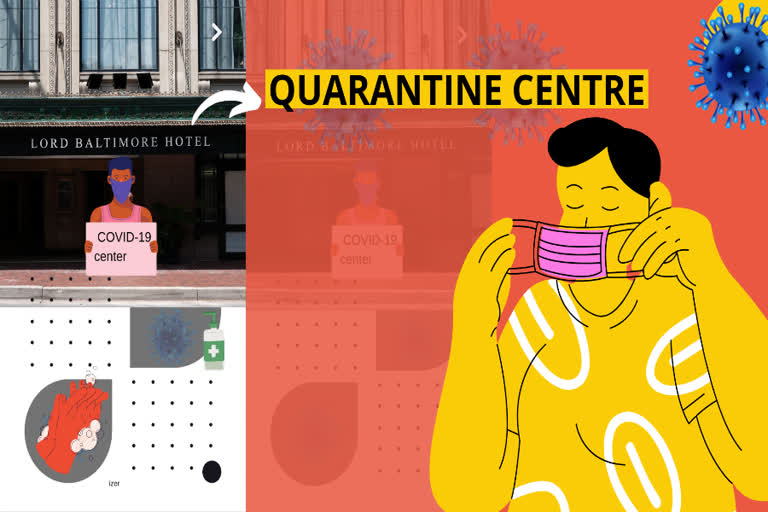The Baltimore Sun: Today, the hotel's ballroom has been converted into a COVID-19 command center. Beneath three grand chandeliers, city employees, and workers from the University of Maryland Medical System take calls from coronavirus-positive residents who need a place to quarantine or health care facilities with patients, some of them homeless, who need a place to stay.
Across the globe, hotels are being used for isolating people suspected of having COVID-19. Travelers to Singapore, Australia and Taiwan head straight from the airport to inns and hotels for 14 days to prevent transmission of the virus. Sometimes, guests pay for part or all of the stay. But that's not the case at the Lord Baltimore Hotel, which is now the city's Triage, Respite, and Isolation (TRI) Center. Since May, more than 600 people have come through its doors, and all of them have stayed for free.
Also Read: Zoo scientists revive cells from 40-year deep freeze to clone endangered horse
The project, which is a partnership between the city and the University of Maryland Medical System, is funded through the $103 million Baltimore received from the federal government in CARES Act funding. While those dollars expire in December, city officials plan to seek funding from FEMA to keep it open longer.
"Our commitment is to be here as long as it's needed," said Chuck Callahan of the University of Maryland Medical Center, who splits his time between the hotel and the convention center, which is also a testing facility and facility.
Among the guests are Leon Love, a 68-year-old Baltimore resident who stayed at the hotel last month. He tested positive for COVID-19 last month after attending the viewing of a friend; he noticed the inability to taste while he was eating bean soup. Rather than risk infecting his family, who he was living with, he checked in to Lord Baltimore. He credits the good care he received there with helping him make a full recovery from the illness.
"Talk about not wanting to leave," he said.
Early on in the pandemic, Baltimore leaders realized that people living in homeless shelters and other group settings would need a place to isolate if they tested positive for COVID-19 or were exposed to the virus. A motel set aside for that purpose quickly filled up to capacity. Organizers needed someplace bigger, centrally located, and better equipped to deal with sick people. So they approached the University of Maryland Medical System for help.
Callahan, vice president of population health at the University of Maryland Medical Center, said the medical system had approached the Lord Baltimore's owners earlier in the pandemic to secure overflow beds should the hospital run out of room. But that ended up not happening; so it instead became a place for homeless and COVID-19-positive residents.
It's not the first time the city has operated a quarantine facility. For centuries, Baltimore operated a quarantine hospital at Hawkins Point, now the location of its landfill. Whether facing epidemics of yellow fever, typhus or smallpox, residents were sent to South Baltimore to prevent infecting other residents.
Conditions there weren't always optimal. In 1899, according to The Baltimore Sun archives, an officer there complained that the infirm were kept in the same place as people who were only possibly sick and this allowed the spread of disease.
120 years later, officials carefully configured the Lord Baltimore site to isolate sick people, who stay in individual rooms. The University of Maryland infection prevention team designated a "hot zone" and "cold zone" system within the hotel floors. Hot zones, where people who are isolating stay, are sealed off from elevators with two layers of plastic. The elevator bank is now a donning and doffing station where staff put on protective gowns and masks.
Baltimore City Council approves worker recall bill over the law department, hotel industry objections.
Guests don't actually enter through the grand lobby; for safety reasons, they come in by the loading dock. The center also sends special cars out to pick people up from the community so they don't need to worry about possibly infecting an Uber or cab driver.
Also Read: Could muck collected from an African lake by Kentucky researcher help millions avoid crisis?
Staff call residents "guests," not "patients," in part to emphasize the fact that they don't provide full medical care at the hotel. Should anyone take a turn for the worse, they'd be transported to a nearby hospital.
